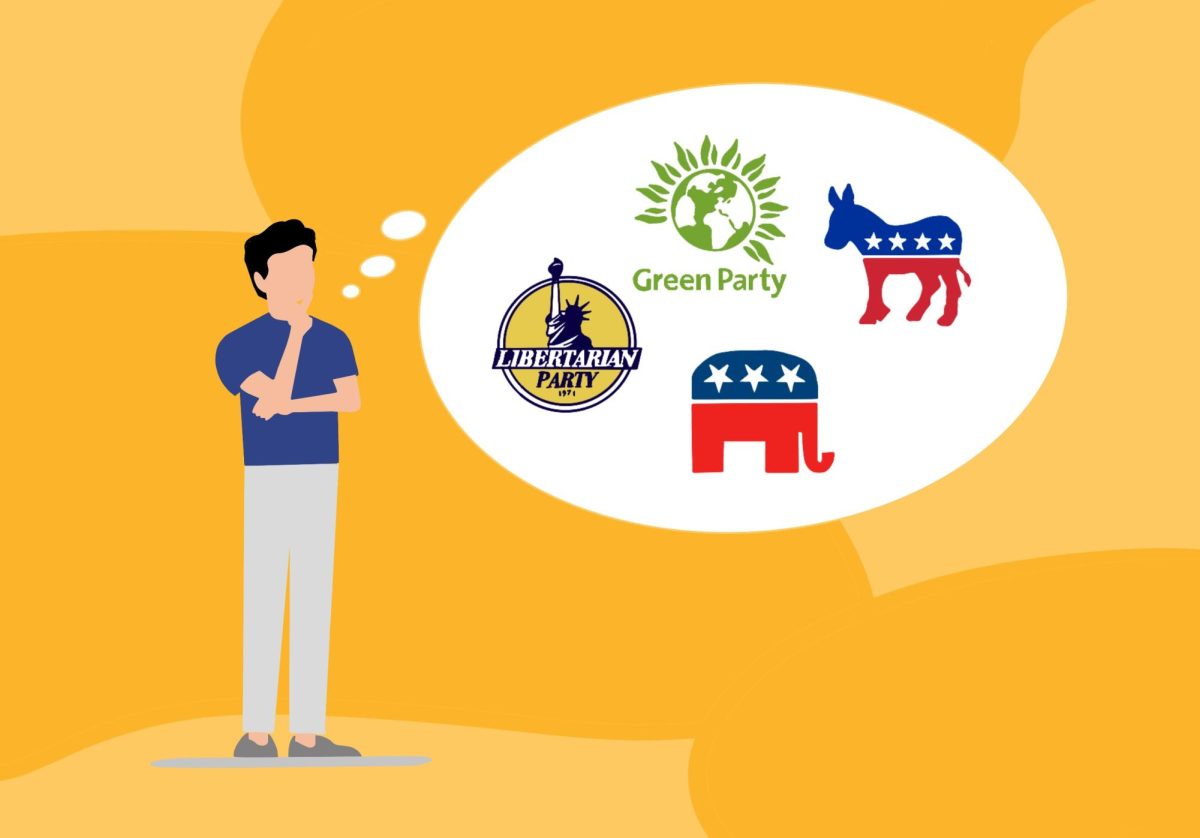If you have ever sat at the family dinner table and just wanted to scream at your relative for saying something racist or homophobic, maybe rethink your approach.
People do not tend to change their opinions when they are met with hostility, according to Psychreg. It is a delicate process. So, the next time someone around you shares a bad take or says something offensive, respond calmly.
Some big issues people are debating on TikTok for the upcoming election are the United States’ investment in Israel and Project 2025 — a list of policies by the Trump administration to make a more conservative America if former President Donald Trump is reelected.
Social media is a battleground for opposing sides. I cannot count the number of times I argued with someone on Instagram for posting “All lives matter” on their stories in 2020. Four years ago, I was not as informed. I did not understand that ridiculing someone for something they said would not make them change their mind.
I have tried to change my brother’s opinions on transgender rights and diverse casting in his favorite TV franchises, but I have only countered his opinions with anger.
When I was in high school, I posted content online where I was met with anger. In 2020, I reposted violent images of police brutality on Instagram because I thought it would raise awareness. People responded and said it was not a productive way of raising awareness and did more harm than good. I was embarrassed. Taking accountability and admitting you made a mistake can be hard, especially if you fear judgment, but it is a respectable thing to do.
Christopher Federico, a political science and psychology professor at the University of Minnesota, said when people are reconsidering an opinion, others can be less than forgiving.
“‘Why didn’t you figure that out a year ago?’” Federico said. “‘Why didn’t you believe that already?’ If you do that, you are likely putting people in a position where there is an identity threat, a threat to their sense of self.”
According to Federico, this leads to people feeling like they are not respected and becoming more defensive of their opinions. Changing someone’s opinion is a slow process.
When someone’s opinion is flagrantly immoral and offensive, directly attacking them will not be effective, Federico added. But, he would not advise being open to any argument someone poses.
“The question is, when do you have to morally condemn an opinion because it’s so dangerous or unpleasant, versus when you can take a patient path?” Federico said. “It is a judgment call.”
Abby Wichlacz, a fourth-year student and the president of the Undergraduate Political Science Association, believes casual debates should be approached calmly and factually.
“‘I believe that it is the right thing because of XYZ,’ and give them the facts,” Wichlacz said. “Give them the background rather than being like ‘You’re terrible.’”
Wichlacz said holding people accountable for their beliefs is not always the most important. Some people do not want to change their opinions, and they believe what they believe because they were raised that way.
“But, if they act on their beliefs, if they say something offensive or if they do something offensive, then we can say ‘That is not cool,’” Wichlacz said.
It is key to ensure they know what they are being held accountable for, Wichlacz said.
The most important thing to understand is that we all come from different places and have our own stories, Wichlacz said. I agree. Opinions do not disappear and beliefs do not go away.
Wichlacz said you cannot always hold someone accountable and you cannot always get someone to understand your opinions. However, Wichlacz believes existing as a person with contradicting opinions is a good way to make other people aware of another side of an argument.
“I think even just existing if you can’t have that conversation with somebody, is a really good way to start fostering doubt in somebody,” Wichlacz said.
When it comes to the political attitudes we hold, we are more flexible than we think, according to an experiment conducted by Scientific American. There is hope when it comes to reasoning with someone who does not share the same beliefs as you, but it could also be out of our hands.
It is important to be consistent in trying to inform people about what you think is right and where your opinion stems from, but it is not always important to be consistent in our beliefs. Outside of the blatantly offensive perspectives, we should seek to understand why people have certain opinions. It is crucial to constantly inform ourselves and the people around us if possible.














